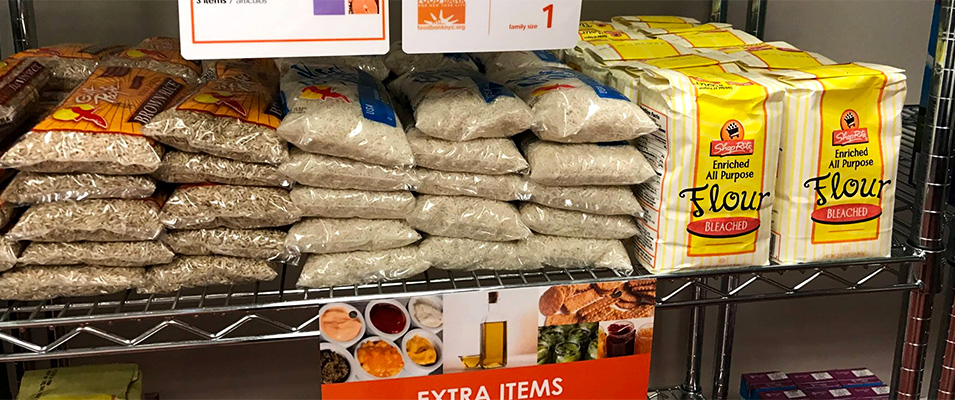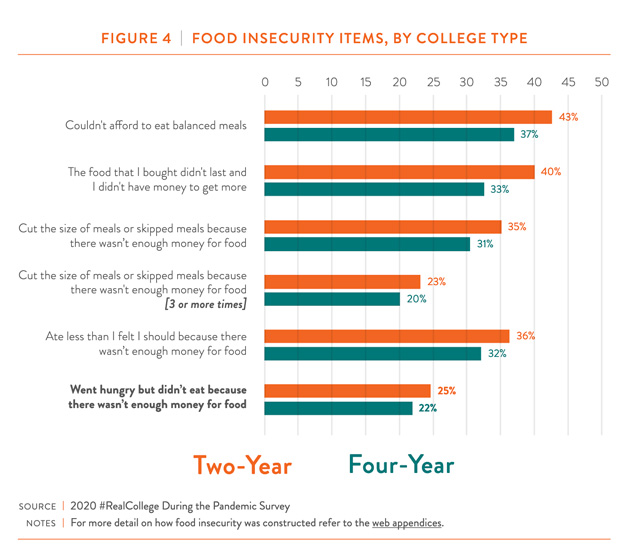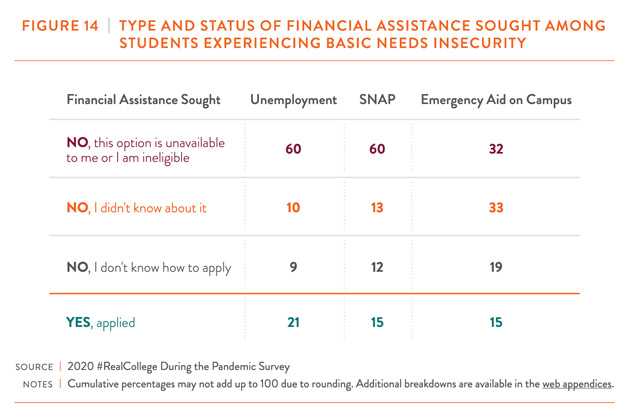By Eudy Castro
U.S. Senator Kirsten Gillibrand has introduced new legislation to help college students pay for food. Gillibrand announced the Enhanced Access to SNAP (EATS) Act December 3 at Hostos Community College. The purpose of the act is to make all college students who are part time in two and four year schools eligible for SNAP (Supplemental Nutrition Assistance Program) benefits. Under the act, about 290,000 college students in New York will be eligible. Senator Gillibrand said she is pushing for this act because the current SNAP eligibility is not fair to part time students. “SNAP eligibility rules for students are overly complicated and do not include college students, unless they are eligible for one of the exemptions to the rule, which includes working 20 hours per week or participating in a federal or state work study,” says Gillibrand.
The EATS Act aims to reduce food insecurity, which has been a problem for years and has now been amplified by the COVID-19 pandemic. The Hope Center for College, a research organization that advocates for higher education, conducted a survey in 2020 of 38,602 students from 54 colleges and universities in 26 states. The organization reported that students of color were more likely to experience food insecurities, housing insecurities and/or homelessness. Indigenous students were most affected with 75% of students at risk. They were followed closely by Black and Native American students with 70% and Hispanic or Latino at 64%.
The act will make the job of food banks slightly easier. The pandemic has affected students who were relying on food banks because they could not afford groceries. These pantries have been useful, but the EATS Act will provide additional support to meet current demand. Food insecurity increased from 33% to 38% in four-year institutions from April 2020 to May 2020, according to The Hope Center for College.
Nearly six out of every 10 students have enduring basic needs insecurity, said David Charcape, assistant director for activities at Lehman College and a leader for the Herbert H. Lehman Food Bank. Seventy-two percent of pantry users are full time students. Of these, 51% are unemployed, 19% are employed full time, 30% are employed part time. The Lehman Food Bank has been open since March 2017 and has donated 120,000 meals to students. “We purchase food from the NYC food bank since its much cheaper, and it allows us to properly supply our students,” said Suzette Ramsundar, associate director of campus life who also works with the Lehman Food Bank. “Every bag of food serves as nine meals.”
Ramasundar said that the food bank has provided other benefits like grocery gift cards, most recently during Thanksgiving. “Although we have managed to keep the pantry going, the beginning of COVID made things difficult,” said Ramasundar. “The campus had been shut down and access inside the campus was impossible. We had to meet at select gates to give students their food bags.”
The Lehman Food Bank has been working hybrid, allowing students to either pick up food bags or purchase gift cards that would be used for groceries. A helping hand like the EATS Act would benefit both the food bank, and most importantly the students. “No student should ever have to choose between a meal and their education, and as public servants it’s our duty to ensure no student is ever put in that position – here in New York State and around the country,” said Congressmen Adriano Espaillat.
Food insecurities negatively impact students’ performance in school. They are not able to focus in class if they’re hungry. According to the CUNY Urban Food Policy Institute, “Students who were hungry ‘often or sometimes’ in the previous 12 months were twice as likely to have failed out of a degree program as students who had not experienced hunger.”
Charlotte Copeland, a student at Lehman College, explains why she uses the Lehman Food Bank.”I come from a household where we struggled for food,” says Copeland. “I would go to classes hungry and it was not a good experience. Sometimes I could not wait to be in school, as it used to be my only ways of getting lunch.”
Copeland went from going to different pantries and assisting in them, to now working in the pantry at Lehman and helping students in need. She saw improvement in her school work once she had sufficient food. Copeland participated in the Lehman Food Bank Thanksgiving event, during which they gave out food and gift cards. “Any student that missed out on gift cards has an opportunity to sign up for them,” says Copeland. “On the Lehman360 website or phone you can look for the Campus Life link and look for forms.”
On Lehman’s website, there are a variety of resources showing people how they can make use of the food bank both online and in person. There are also resources that show students how to register for SNAP.






